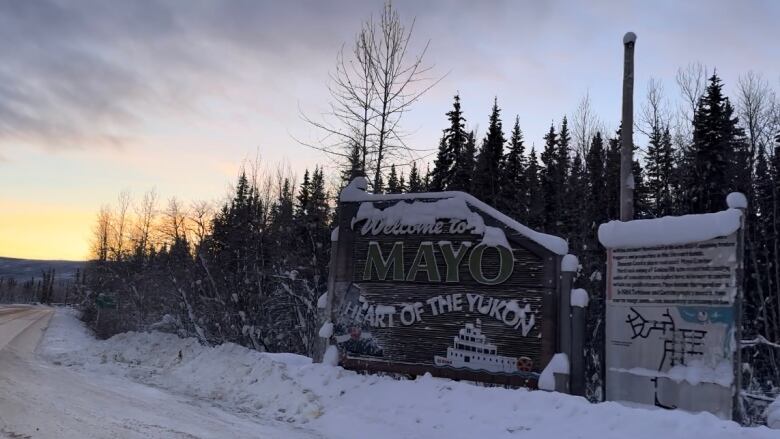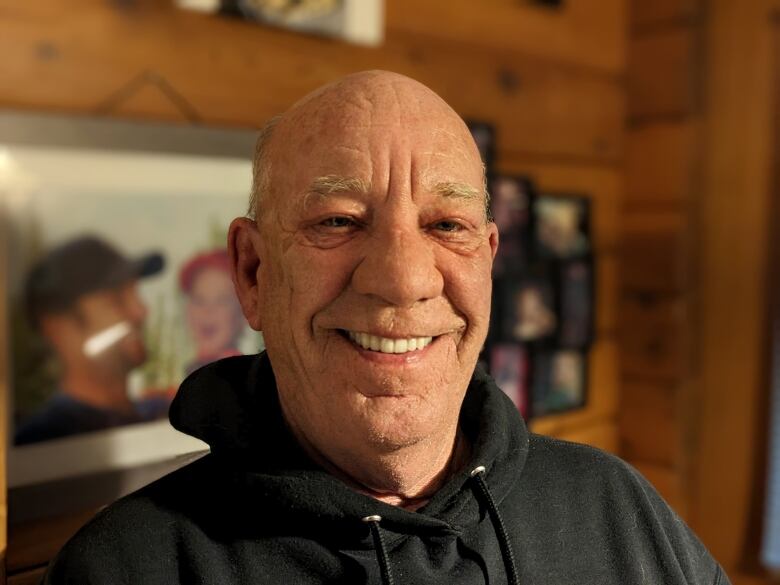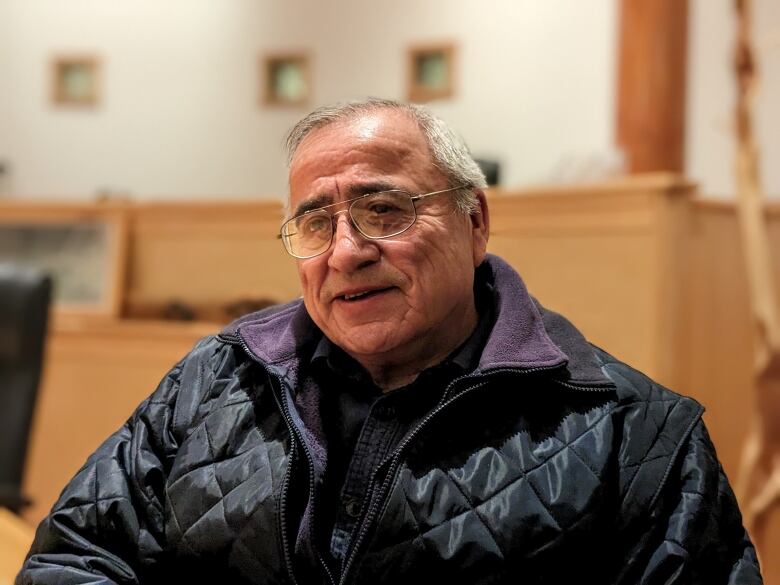'Our people are dying': Mayo residents say Yukon gov't efforts to address substance use fall short
Yukon government says it's handling the opioid crisis, but this small community says otherwise

Warning: this story discusses suicide
Don Hutton says he wonders if having better health servicesin Mayo, Yukon, might have saved his son, Frank, who lost his life to suicide more than a year ago.
Hutton is among severalresidents of Mayo, approximately 400 kilometres from Whitehorse and home to Na-Cho Nyk Dun First Nation, who are decrying a lack of on-site treatment and supportas the opioid crisiscontinues togripthe small community. For Mayo, the crisis is not only about toxic drugs, but also about overall addiction including alcohol.
"My son made a decision to put a needle in his arm," Hutton, who was born and raised in Mayo,told CBC News.
"Maybe he wouldn't have made that decision ifthere was a mental health worker that he could have talked to. We'renever gonna know that. So I, as a father, am so disappointed, you know, that I wasn't able to protect him. I protected him from everything. But I couldn't protect him from himself."
Hutton, the former MLA for Mayo-Tatchun, left the Liberal caucus in 2021 over what he called inaction from the government on substance use.

His latest plea comes as the Yukon government released a statement Fridaythatmarked one year since it declared a substance use health emergency across the territory. That declaration was in response to a growing number ofopioid-related deaths and substance use-related harms.
"This fiscal year, the Yukon government has also invested over $3.4 million in supports, harm reduction, treatment and to raise awareness as our territory responds to the [emergency],"HealthMinister Tracy-Anne McPheesaidin Friday's statement.
"While government and community partners have worked diligently to expand and improve the mental wellness and substance related services available in the territory, many Yukoners continue to struggle, and toxic drugs still circulate in communities."
In mid-December, the Yukon's chief coronersaid 25 people died from toxic drug use in 2022. This matches the record-breaking number of fatalities resulting from toxic illicit drugs investigated in 2021.
The territory's Coroner Service investigated oneopioid toxicity death last yearoccurring in Mayo which hasa population of just 457according toChief Coroner Heather Jones. She, however, warnedthat the data might not reflect reality.
"I can provide data for the location of death only.This will not be reflective of the community of residence for the individual," Jones said in a emailed statement to CBC News. "And of course, I can only provide information for deaths which were investigated by Yukon Coroner's Service."
She also said the data does notreflect deaths occurring in other locations within the Yukon or outside of the Yukon, or other causes of death where substances may have been usedbut were not the cause of death, she added.
A different reality
Several Mayo residentsdescribed what they said to be a devastating crisis, affecting not only one or two familiesbut the entire community.All spokeof more than 10 people losing their lives to addiction or suicide over the last year.
In 2021, the coroner's office confirmed it was aware of at least five deaths connected to Mayo.
Currently, the community doesn't have its ownaddictiontreatment program or treatment centre.People seeking such support are forced totravel toDawson City or Whitehorse, but will come back and find themselves in the same environment.

Na-Cho Nyk Dun First Nation Chief Simon Mervyntold CBC News in a recent interviewthe issue has beenhard to tackleas it became deeply personal after he lost his son to addiction two years ago.
"It's devastating," Mervyn said. "Our people are dying. Our young ones are vastly, quickly fading away.... We have to find a better way to approach the issue."
Mervyn said he feels like the community can't rely on the government anymore. It isn't easy to find a solution, though, he added.
Trevor Ellis, the mayor of Mayo, echoed the chief's concerns and questioned how to bring in servicesthat aretailoredto the unique needs of people struggling with "hard drugs" addiction in Mayo.
"I think we are dealing with something we have never dealt with," he said. "This isn't alcoholism, or an obesity epidemic. What we are seeing right now is so much stronger than those things and I think it's going to be tough to get out of here. There's no quick fix."
Ellis credited the government's initiatives to raise awareness to this issue, but agreed with Mervynthat not enough is being done.
"The one that concerns me the most are the one who are suffering from those addictions," Ellis said.
"I'm all for the prevention, but the ones suffering I'm at loss [for] how to help them."
With files from Leonard Linklater












_(720p).jpg)


 OFFICIAL HD MUSIC VIDEO.jpg)
.jpg)



























































































